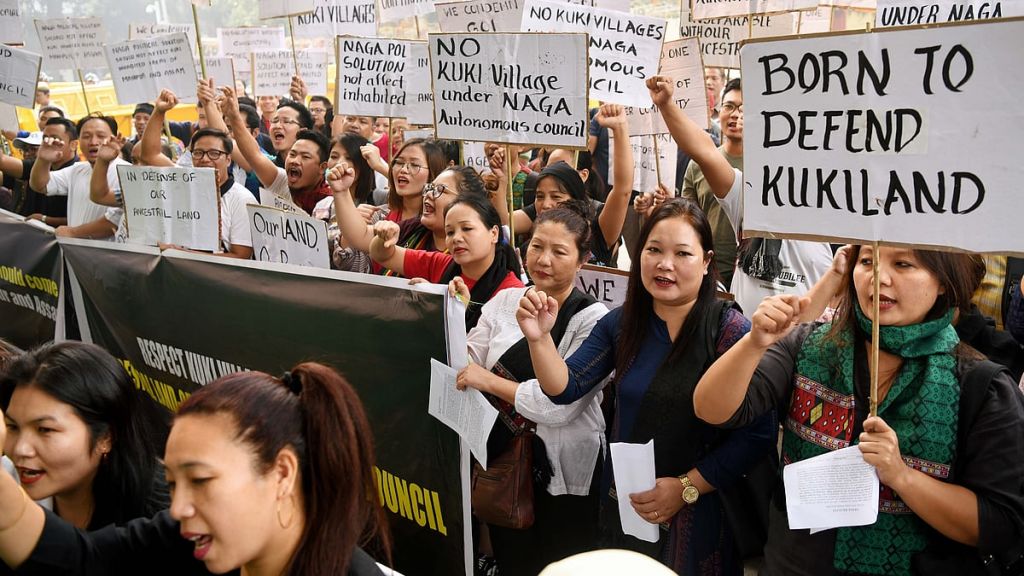
Peace in Manipur is not only about Manipur; it is about the working of democracy and the Constitution of India, said Dr J Lamboi Haokip, Director at Centre for Indigenous Studies in Manipur.
Haokip spoke at a meeting organised by the Centre for Study of Society and Secularism, Bombay Catholic Sabha, and Institute of Indian Culture, on February 6 at St Peter's Church, Hill Road, Bandra. The subject of the meeting was 'Present Situation in Manipur: Pathways to Peace and our Role'.Lamboi said that authoritarian and anti-democratic forces had a 'stranglehold' on the Constitution.
He said the attacks on churches during the conflict in Manipur were a strategy to strike at the very roots of Kuki identity, one of the two groups involved in the ethnic strife in Manipur.He said that the hill areas, where the Kukis live, have been kept very backward - there are no roads, schools, state health services, or electricity. In his childhood, Lamboi recalled that villagers had to cross three hills to buy necessities. He educated himself in very trying circumstances. The conflict had orphaned more than 200 children, he said. Kukis lost their jobs as they could not go to the Meitei-dominated Imphal Valley.
The Meitei, on the other hand, have said that members of their groups have been attacked in the hills and made to flee to the valley,
Irfan Engineer and Neha Dabhade of the CSSS who had visited Manipur to document the conflict said that unless there is a strong voice from the rest of India, the present regime has no political incentive to work for peace. The meeting pledged to raise crowdfunding for an ambulance necessary to carry patients needing medical emergencies from villages in the hill areas to Aizawl in neighbouring Mizoram for treatment, 15 hours away as they cannot be taken to hospitals in the Imphal Valley.